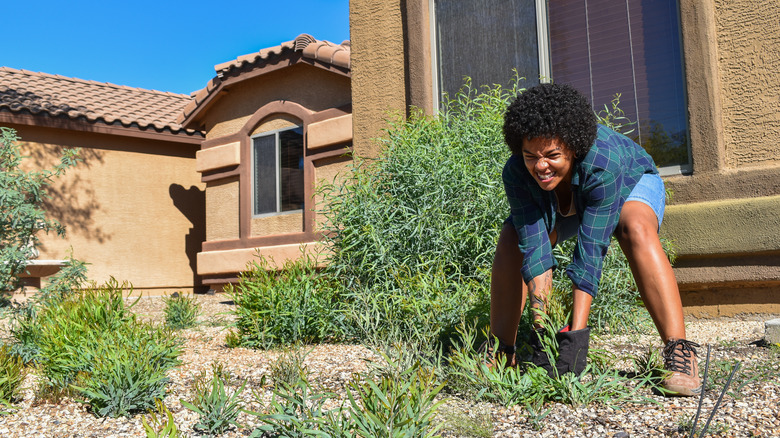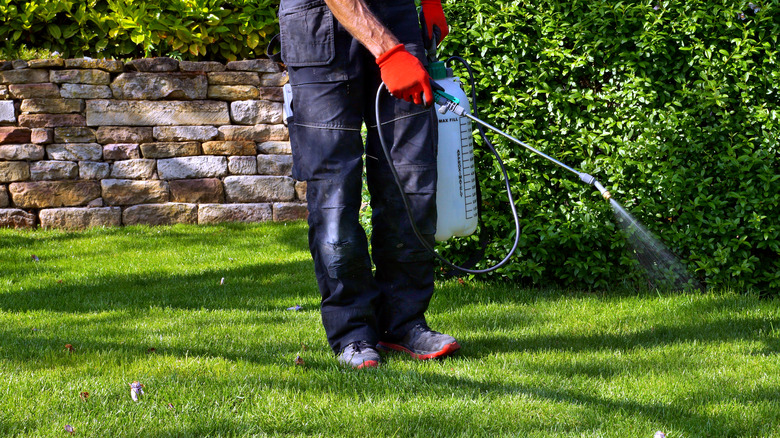Control Crabgrass In Your Yard With The Help Of Apple Cider Vinegar
Crabgrass has long been the bane of almost everyone who enjoys spending time in their yard. Despite its name, crabgrass is actually a weed. It belongs to the genus digitaria and is most prevalent in the summer, when it can spread rapidly and literally take over a lawn. Once crabgrass takes hold in your lawn, it can cause a variety of issues — none of which are good. Some of the problems caused by a crabgrass outbreak include bare spots left when the crab grass goes dormant in winter, reducing nitrogen levels in soil, killing nearby plants, and preventing good grass from growing.
One way to help prevent the rapid spread of this pesky weed is to avoid cutting your grass too short, which is one of the most common ways it spreads. Instead, follow the one-third rule for mowing. However, while utilizing good mowing techniques helps control weeds, crabgrass can still emerge and spread. Many facing a crabgrass invasion ultimately turn to chemicals to control it. That said, there are natural remedies that work just as well. One natural substance that many turn to is salt. Although salt will indeed destroy crabgrass and other weeds, using salt to kill weeds can be a big mistake, as it will also often take out plants you are trying to protect and can damage your soil. A better alternative is to control crabgrass in your yard with the help of apple cider vinegar.
Apple cider vinegar is beloved by many outside of the kitchen — and it can come in handy in your yard, too. To control your crabgrass problem, you only need a mixture of apple cider vinegar, some other ingredients you likely already have, and a spray bottle. Here's how to apply it for maximum effect.
How to use apple cider vinegar to control crabgrass
Apple cider vinegar is one of those substances that is indispensable because it seems to be good for just about anything. It has a number of health benefits when used as a dietary supplement, can be used for a variety of cleaning tasks around the house, is an effective bug repellent, and can be used to kill weeds in your lawn and garden.
There are a number of weed killer recipes utilizing apple cider vinegar, including Martha Stewart's three ingredient DIY weed killer. While you can just simply spray apple cider vinegar on weeds, it is best to add dish soap to allow it to adhere to the leaves. Various recipes call for mixing the apple cider vinegar with baking soda, water, and/or lemon juice. Regardless of which version you choose to make, it is best to place the concoction in a handheld sprayer like the Chapin 2000 1-gallon lawn sprayer. Be sure to adjust the sprayer to a tight spray pattern so you only spray the targeted weeds, as apple cider vinegar is an indiscriminate herbicide.
According to a study by Montana State University, the acetic acid in vinegar is what causes weeds — and other plants — to die. The higher the concentration of acid, the more effective the solution will be as a weed killer. The M.S.U. research also points out that, as a general rule, apple cider vinegar is most effective at younger weeds and when applied during peak sunlight hours.

